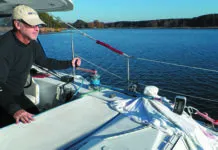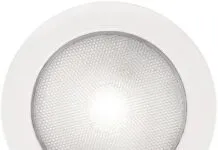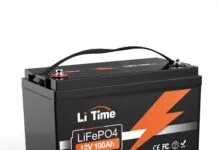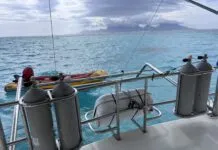There is a lot of dispute about the benefits of diesel-electric propulsion over traditional diesel, and comparable numbers are hard to come by. Could you arrange a test? Diesel-electric benefits in charging house batteries and powering the fridge are obvious, but propulsion is less so. What I would like to see is a chart of the kinetic energy of each system in the X-axis, and in the Y-axis, consumed fuel. That ratio should be the value that counts. Of course, a range of appropriate propellers would also have to be tested.
Kari Kolehmainen,
Finland
Maxi 68
There is an inherent inefficiency in changing energy from chemical (fuel) to mechanical (diesel engine) to electrical (generator) back to mechanical (electric motor). For cruising boats, two approaches to electric propulsion are vying for attention: diesel electric, in which an expensive DC diesel generator with a sophisticated controller powers an electric propulsion engine, and hybrid electric, in which a common marine constant-speed AC genset charges a large battery bank that powers the motor. We recently had the opportunity to test two

Jeremy McGeary
288
catamarans that use electric motors for propulsion, the diesel-electric Moorings Leopard 43 and a prototype of the hybrid-electric Lagoon 42. We also examined a custom wooden daysailer made by Covey Island Boatworks with a shore-charged “get-me-home” electric sail-drive built in the United Kingdom. Finally, the new Torqeedo portable electric rechargeable outboard just arrived at our test yard. So weve got some interesting electric propulsion projects aimed at cruisers and small boaters alike.
In terms of fuel efficiency, the OSSA Powerlite (www.ossapowerlite.com) diesel-electric system that is used in the Leopard was the most intriguing. According to the company, its system eliminates the extra battery weight (and attendant losses in efficiency) required in the hybrid-electric. Engine speed is decoupled from the propeller, so in theory, the engine/generator could be running at its peak output while the propeller is turning at only 50 percent its top speed. Or when the propeller is lightly loaded (surfing down a wave), the engine/generator could slow down, yet keep the propeller turning at peak speed. The motors higher torque has the potential to drive a more efficient fixed-blade propeller than a conventional diesel; however, neither boat we tested seemed to be making the best use of this advantage.
However, since sailboats usually cruise at a fixed RPM, they can be very efficient under power with the right drive train. Adding an expensive, high-voltage system with more parts is far from an ideal solution for something that spends its life in salt water.
If you could design and equip a boat with a more efficient electric propulsion system, would the added expense offset any savings in fuel that might be achieved by simply improving a conventional diesel system? Theres more to be said on this, and well be addressing it this year.
































